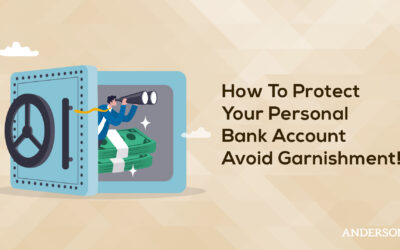Updated October 2, 2021
When it comes to purchasing real estate, many people think it’s all about the location. But if you’re a real estate investor, there’s nothing more important than your business relationships and connections. While location is certainly an important factor, networking is even more so. Here are 12 tips for making the most out of real estate networking.
12 Tips for Making the Most of Real Estate Networking
- Join a REIA (Real Estate Investors Association)
- Optimize Your LinkedIn Profile
- Publish a Book on Amazon
- Follow Real Estate Professionals on Social Media
- Start a Blog
- Start a YouTube Channel
- Leverage Your Personal Network
- Attend Industry Events
- Create a Great Website
- Build a Team You Trust
- Offer Genuine Value to Others
- Learn How to Network Well
Most people have a common misconception that real estate is “passive income.” However, every real estate investor knows that while properties can produce cash flow, building a portfolio requires hard work. Most of that hard work is involved leveraging the right people: agents, contractors, bankers, and other investors. In order to build a network of reliable people, you have to put in the effort to make these connections.
Why Real Estate Networking is Important
Expanding your circle of contacts can put new opportunities on your radar screen, which you might have otherwise missed. You never know when someone you meet at a seminar or who visits your blog and watches your videos on YouTube will reach out with some information about a good deal. The wider the net you cast, the more fish you will catch.
When you work in real estate, you are often faced with issues that require expert assistance. You might need a good contractor because your primary contractor is already busy, or a good tax advisor who understands the ins and outs of real estate taxes. You could find yourself needing a real estate agent who is familiar with a specific area to help you expand into a lucrative neighborhood. Whatever the case may be, having an established network will help you connect with the right people when you need them most.
As every entrepreneur knows, you never want to have all your eggs in one basket. Creating an extensive network will help you tap into other areas outside of real estate in your quest to generate wealth. Having a large network can set you up for the possibility of finding other types of investments, such as startups, retail operations, and stocks. You might have read about all these different avenues of cash flow, but it’s not always about what you know. Sometimes it’s about who you know … and you can only meet them if you network properly.
12 Tips for Making the Most of Real Estate Networking
A networking event is not the only opportunity you’ll have to forge new connections and find referrals. Networking opportunities exist in many forms, such as building an online presence through social media, blogging, and creating a quality website. Successful networking involves deepening the connections in your already extant network, offering value to others, and joining local organizations.
1. Join a REIA
With over 40,000 members, the National Real Estate Investors Association is the largest network dedicated to helping out individual investors. You can connect with local investor associations, property owners, landlords, and apartment associations. You will also gain access to range of benefits that will help build your portfolio; annual rebates from Home Depot and discounts from Office Depot, Constant Contact, and 1-800-GOT-JUNK are a few of the perks that come with a REIA membership. REIAs can also be a place to receive continuing education through a mentor, or you can become a mentor yourself.
Your best bet is to start out by joining your local REIA. There are dozens of associations across the United States, and each one will provide you with the opportunity to network with real estate professionals in your area. With your membership in a nationally-affiliated REIA, you will automatically be connected to everyone in the national network, including events and conferences—and enjoying the financial benefits offered by REIA membership. There are many REIAs that are not part of the national organization, but these groups still provide incredible value. Whether you’re an experienced investor or learning about real estate investing for beginners, joining a local REIA is a must for building a network of like-minded real estate investors and ancillary professionals in the field.
2. Optimize Your LinkedIn Profile
LinkedIn is the premier social networking venue for professionals. LinkedIn makes it easy to make contacts and form partnerships with others in the industry. It’s your best source for finding real estate agents, mortgage brokers, and entrepreneurs who also act as angel investors. But more than that, LinkedIn is a place where people can find you.
Optimizing your LinkedIn profile means creating a content-rich, impactful space for potential connections to see your experience and understand your goals. This is a great place to write a captivating description about what you do, along with attaching a link to your website and portfolio. While bankers and agents will likely find you and make contact, you may also get a visit from a busy professional who wants to unload a property or offer a good investment opportunity.
Pay special attention to the keywords and phrases you use in your LinkedIn profile. When people put specific terms into LinkedIn to search out relevant future connections, your profile will come up—so optimizing your LinkedIn profile is a great way to build your network.
3. Publish a Book
Publishing a book is an often-overlooked strategy that can do wonders for building your network. You may be put off by the idea of writing a book, but the truth is, you don’t have to write it all by yourself. You can partner with a qualified ghostwriter for much of the work. By creating a simple word document that contains the narrative of your expertise, you have something to distribute on Amazon. Millions of readers are consuming digital content on Amazon, and by releasing a short e-book about your story and/or experience, you are creating an engaging link to your website and building trust with potential members of your network.
Once you’ve created your book content, you can also order hard copies from a self-publisher and give out printed books at events and conventions. Handing out business cards is all pretty standard—but when you give someone a book with your picture on the cover, you immediately convey your expertise and create a memorable impression. You can also use the book to capture emails of visitors to your website, which will help you construct a larger email list for potential newsletters.
4. Follow Real Estate Professionals on Social Media
Many real estate agents are tapping into the power of social media. Popular websites like Facebook and Instagram are so visually focused, it’s a great place to showcase property listings to potential buyers and real estate investors. Social media venues can also be a great place to find brokers and discover available local real estate investment opportunities. A real estate broker is a good connection to have in your network because they are often very aware of the housing market and key market trends.
Seek out and follow real estate agents on Instagram and Facebook—but don’t just follow them passively. You should also follow accounts that relate to real estate investing, such as the Chamber of Commerce, lenders, and home inspectors.
Leave comments on their posts and engage with their feed. Don’t be afraid to reach out and introduce yourself, perhaps even by attending one of their open houses. Remember to optimize your own profile, posting written and visual content. If that takes up too much of your time, or you don’t know how to create engaging material, you can outsource much of the work to professional freelance writers.
5. Start a Blog
Blogging is a great way to build your network. If you have a good blog, Google will literally deliver new people to your digital doorstep. Certain platforms, such as WordPress, can help you optimize your content, so it appears higher up in Google search results. When you create high quality content around real estate topics, people searching about that topic will see your name in the search results.
If you don’t feel comfortable with your writing, you can hire a ghostwriter to help convert your expertise into an article that’s informative and easy to read. Keep in mind that a big part of crafting successful web content is to tailor it to the people you wish to attract.
Once you have a library of blog articles, you can repurpose them in several ways to proactively build your network. Make sure there is a way to capture emails on your website, which you can leverage for lead generation. Once you have a list of emails, you can send newsletters and weekly updates to help nurture and maintain these connections. You can also post your articles on social media sites, such as LinkedIn and Facebook, or even try to get them published on a site with more traffic, such as Forbes.
6. Start a YouTube Channel
YouTube is a great platform for building your network. You don’t have to have a professional recording studio to upload content—you can literally just do it from your phone. Of course, if you can hire someone to record and edit quality video content, that’s even better. But viewers will appreciate your content if it’s interesting, so don’t be afraid to simply talk on camera and share your experiences.
This type of content can easily go viral because videos comprise much of the content we consume online. Be sure to share your video on your other social networks and send it to your email list. Another great feature on YouTube is that your content can appear as a suggested video to people searching for similar content. Your video might even appear on their screen after the current video they’re watching is over. This is a great, much-trafficked space to position yourself as a knowledgeable expert in real estate.
7. Leverage Your Personal Network
As you develop your networking strategies, be sure to focus on your personal network of family, friends, and coworkers. As a real estate investor, your business hours are not just from 9:00 in the morning to 5:00 in the afternoon. You can meet a valuable connection anywhere, at any time. This includes family gatherings, a party, a walk in the park, or even at a PTA meeting. Make sure you always have business cards on hand to give you to potential members of your network.
Don’t be shy about mixing some business with your personal life. If conversations turn toward what you do for a living or the real estate market, share your real estate investment expertise. You don’t have to make a deal right on the spot. Remember, there are only six degrees of separation between everyone on Earth, and it takes less than that for you to find your next deal or a reliable member of your network.
8. Attend Industry Events
Industry events, seminars, and get-togethers are a great place to network with buyers and sellers—and many other types of real estate professionals. For starters, people in the real estate industry will congregate at these events, giving you an opportunity to network face-to-face, which is the best and most impactful form of networking. You’ll also have the chance to meet high-powered investors and successful real estate agents. Continuing education is also available at these events through classes, keynote speakers, and workshops. Some of these classes will help you get a better grasp of important topics like real estate negotiation and real estate marketing.
Joining a local REIA is a great way to stay abreast of upcoming events and when they’re happening. A REIA also hosts get-togethers and events throughout the year. These events can provide a social outlet, which is a great way to strengthen the connections you make with people in your network as you get to know them. People tend to go out of their way for people they know and like. To that end, networking groups and events can be a great way to deepen the relationships in your growing real estate investment network. You can also find out about upcoming events from real estate agents and the local chamber of commerce.
9. Create a Great Website
Having your own website is essential when building your network. Your website represents you and helps make a strong first impression when visitors land on your home page. You want to reel them in and convert curious visitors into real estate clients, partners, or referrals. Having a well-designed, eye-catching site that displays your expertise and your portfolio will build trust within your network and make it more enticing for others.
A big part of making a great website is optimizing it to expand your network. There should be a popup window that offers some content (such as an e-book) in return for an email address, which can then be added to your subscriber list for future newsletters. Contact information should clearly be displayed on your website to make it easy for interested investors and property owners to get in touch with you.
10. Build a Team You Trust
While expanding your network is important, it’s also essential to maintain a core team of people you can trust. You want to partner with a good contractor, mortgage banker, property manager, as well as have a trustworthy pool of investors. Other professionals, such as brokers and real estate agents, can focus on the nuts and bolts of your investing strategy, while you focus on the bigger picture. Without a force of talented people helping manage and grow your portfolio, you run the risk of falling short and missing out on opportunities that present themselves.
Partnering with a law firm that has expertise in real estate asset management is a great way to keep your portfolio well-maintained and optimized. While a property manager or property management company can help with the day-to-day maintenance of the physical property, a professional advisor can alleviate many legal headaches and assist with your financial planning, leaving you free to put effort into expanding your network and finding new deals.
11. Offer Genuine Value to Others
When it comes to networking, many individuals forget that forging connections with other people is a two-way street. If your networking efforts are all about receiving and taking, your networking will be severely limited. Instead, present genuine value to those you connect with. Experienced real estate investors know how to sniff out a bad deal and avoid a transaction with bad intentions. If you play the game in a self-serving way, you will quickly find yourself going at it alone.
Leveraging should not be confused with using. Leveraging your network means accessing resources that other people have (such as capital or landed investments) and putting them to work, with a return. Both parties benefit from this type of partnership. Think about what you can bring to the table in your networking relationships, whether it’s a connection to an amazing contractor, advice about the best and worst places to buy property, some untapped capital, or tips about landlord tenant law. Share your knowledge with your connections, because what goes around really does come around—especially in real estate.
12. Learn How to Network Well
Networking takes effort, but it also requires skill. Anyone can post on Facebook, but people who develop their networking skills will find that they build the most meaningful, impactful connections. The art of networking successfully involves many components, such as social manners and tact, body language, and how you express yourself.
You may want to pick up some tried-and-true literature on the subject, such as How to Win Friends and Influence People by Dale Carnegie (it’s been a cornerstone of sales and marketing for almost a century). Somewhat ironically, you can even reach into your network to ask how to network well. Ask socially successful people in your network for tips. You may be surprised to learn that many of them focus on diet, exercise, and mental health—especially around the areas of confidence and anxiety—to improve their game.
Real Estate Networking
Building a real estate portfolio is easiest to achieve when you have a network of people to help you. Investing in real estate is not just about investing money; it’s also about investing time. Networking is one of the most important skills a real estate investor needs to be successful. Attend real estate events, write blog articles, post on social media, and join your local REIA. There are many tools at your disposal—and you should use them all.
Whether you’re renting properties or flipping houses, it’s important to reach out to dependable contractors, bankers, agents, property owners, and other investors in order to grow and maintain your portfolio. Without a good-quality network, you’ll find that real estate investing is full of challenges that are difficult to overcome alone. But with an extensive, ever-increasing network at your back, you’ll be ready to take on the world—one deal at a time.
Bonus Video
3 Steps to Create an Invisible Investor Strategy















